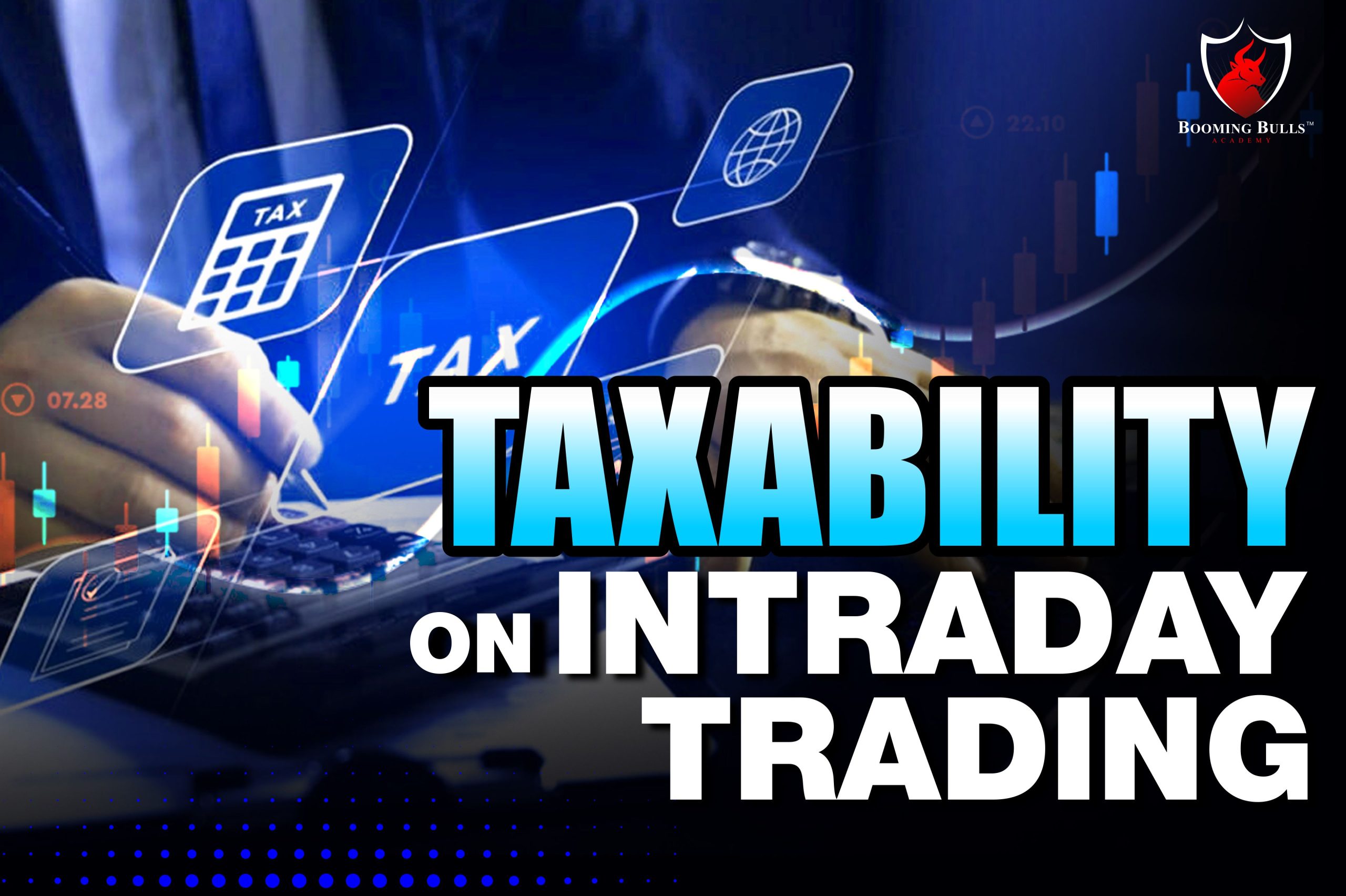

If you are into intraday trading or you are planning to do intraday trading, then you should be aware of the taxability of intraday trading. As trading is considered a business, the income coming from that business is taxed by the Government.
Many traders get confused between gains coming from investments, and trading gains as they are both separate categories and income tax rates on them are totally different. In today’s article, we will discuss in detail the income taxes on Returns on Investment and income coming from trading.
In order to avoid confusion, first, let’s discuss the taxes on Returns on Investment –
There are two categories under which Income tax on Investment return is calculated, and those are-
1) Long Term Capital Gain (LTCG)
2) Short Term Capital Gain (STCG)
1) Long-Term Capital Gain – If your holding period of a capital asset is more than 1 year, then the gains earned from that asset are considered under long-term capital gain. The tax on those gains is 10%.
2) Short-Term Capital Gain – If the holding period of a capital asset is less than 1 year, then the gains earned from that asset are considered under short-term capital gain. The tax on those gains is 15%.
In this way, taxes on capital gains are calculated. Now we will discuss the calculation of taxes on trading. The trading business is mainly divided into two categories when it comes to taxation-
1) Speculative Business Income
2) Non-speculative Business Income
Income generated from intraday trading transactions is called Speculative Business Income. As in intraday trading, you buy & sell the shares on the same day, and you do not take the delivery of shares; hence it is called speculative Business Income. In India, there is no separate tax slab or tax guidelines for income generated from Speculative Business Operations, and they are added to total income for the calculation of the tax.
All the transactions which are not speculative fall under this type. The income generated from all the delivery equity trades, Future & Options trades, commodity & currency futures, and options trades falls under Non-speculative business income.
For non-speculative businesses also, there is no separate tax slab or guidelines, and they are added to the total income for tax calculation.
Consider a person whose total annual salary= A = 5,00,000.
Income Generated from Speculative Business Operations= B =3,00,000
Income Generated from Non-speculative Business Operations= C = 2,00,000.
Total Income = A+B+C = 10,00,000
According to tax slabs, the total income tax will be-
| Slab | Tax Rate | Tax calculation |
| 0 to 2.5 Lakhs | 0 | |
| 2.5 Lakhs to 5 Lakhs | 5% | 2,50,000x 0.05=12,500 |
| 5 Lakhs to 10 Lakhs | 20% | 5,00,000x 0.20=1,00,000 |
| 10 Lakhs & Above | 30% | 0 |
Total tax Liability = 1,00,000 + 12,500 = 1,12,500.
Please take note that income generated from salary as well as business is the income after taking into account all the deductions. Also, the tax above is calculated according to the old income tax regime.
Losses incurred from Speculative business are called speculative losses. These losses can be carried forward up to 4 consecutive financial years, and you can set off these losses against speculative business income only.
On the other hand, the losses incurred from non-speculative business transactions are called non-speculative losses. These losses can be carried forward up to 8 consecutive financial years, and you can set off these losses against any other business income and not against your salary.
So this was the overview of the taxation on trading; please keep in mind that the example given above was just an overview of how the tax calculations are done for the trading business.
Note that while calculating taxes, other things should be taken into account, such as deductions, rental income etc. I hope that through this article, you got an idea of how tax is calculated for the trading business. If you like this article, don’t forget to share it with us across all your social media handles.
Happy learning!
Open a Demat Account using our link to get support from us – https://bit.ly/3gyhIWN and send your ID to [email protected]
Very useful 👌
Informative 👏
Thank you
It was very helpful
Thank you Manas, glad that you find the blog helpful. We constantly try to bring helpful blogs for our traders and will continue doing so.